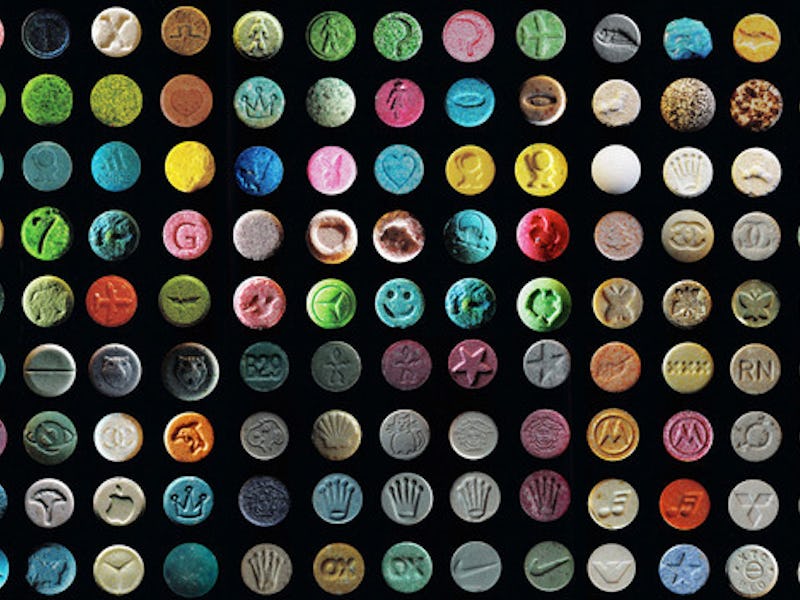History Repeats Itself as the UK Rolls Out Blanket Ban on Psychoactive Drugs
Thanks to the Psychoactive Substances Act, all "legal highs" are officially banned in the UK as of today.

It’s official: All “legal highs” are officially banned in the UK as of today. The draconian Psychoactive Substances Act, which is meant to curb the use of new designer drugs offering alternatives to more common street drugs, makes illegal the act of supplying, producing, and possessing any psychoactive drugs — LSD, magic mushrooms, cocaine, etc. — an act punishable by law. The new legislation will allow the police to search people, cars, and homes as well as jail offenders for up to seven years.
UK government officials have been cracking down on so-called legal highs” since they first appeared in the late 2000s. They’ve been having a hard time regulating their use because new designer drugs are being synthesized all the time — it just takes a bit of chemistry to tweak an existing drug — and finding their way onto the streets.
An official government report estimated that the number of deaths caused by the new synthetic drugs have more than tripled in the past two years. Frustrated with its inability to police each new drug as it pops up, the UK decided to shut them down as a single broad class.
“The Psychoactive Substances Act sends a clear message,” said the Minister for Preventing Abuse, Exploitation, and Crime Karen Bradley in a release. “These drugs are not legal, they are not safe and we will not allow them to be sold in this country.”
Huge problem here: In the long, repetitive history of humans policing humans, there has never been a single instance in which prohibition worked. If people want to get high, they will find a way to do so: As Kofi Annan articulated in his call to regulate — not criminalize — drugs, banning intoxicants simply forces them onto the black market (i.e., the dark web), which causes its own mess of violence and futile government spending.
By Annan’s account, global prohibition efforts cause $100 billion a year, but because 300 million people use drugs regardless of their legality, the global illicit market has a turnover of $330 billion. If anyone is going to benefit from the ban, it’s not current drug users — it’s the criminal networks that will continue to keep the supply chain moving.
The blanket ban is also likely to cripple the burgeoning field of psychedelic research, which is largely being spearheaded by UK scientists such as Robin Carhart-Harris, Ph.D. of Imperial College London. Already, promising studies on the therapeutic effects of psilocybins on mental illness have been hampered because it’s been so difficult to source the drug legally. With the new blanket ban, it’ll be virtually impossible.